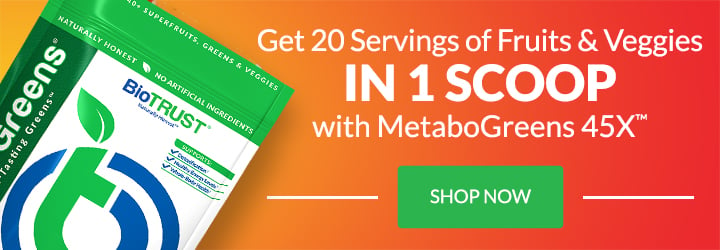What Your Food Cravings Mean (And How to Rewrite Them)

Do you ever experience food cravings—those overwhelmingly distracting, often uncontrollable, seemingly out-of-thin-air desires to eat a specific food? And have you ever noticed those cravings are rarely, if ever, for foods like broccoli, spinach, or even legumes? Instead, when cravings strike, they’re usually for calorie-dense, hyper-palatable foods, which tend to be highly processed and oozing with sugar, fat, and salt. Maybe it’s mom’s lasagna, a fast-food burger, French fries, bacon, cheese, chocolate cake, or jellybeans. What do these food cravings mean?
Of course, these food cravings seem particularly troublesome when you’re trying to eat more healthfully. It’s challenging to lose unwanted weight when all you can seem to think about are the mini peanut butter cups on your co-worker’s desk or the cookies your friendly neighbor dropped on your doorstep.
What Causes Food Cravings?
There isn’t a single cause of food cravings. (Sorry, you can’t always blame your co-worker, family member, or neighbor for leaving out those tempting treats, though that does seem to make it harder—out of sight, out of mind!)
The “blame” often lies in your own brain, which has been wired for pleasure and reward and has numerous memories tied to these foods. Cravings can also stem from emotions and how you deal with them—especially if you tend to turn to food for comfort. (Doesn’t that include nearly everyone?)
The cause can also be from hormones or other chemical imbalances, such as fluctuations in leptin, serotonin, or endorphins. Pregnant women seem to be especially affected due to the hormonal roller coaster that affects smell and taste.
What Your Food Cravings Mean?
Other cravings may come from your body as a way to let you know you’re missing out on key nutrients. (Having said that, this doesn’t mean it’s a license to overeat, and along those lines, if you know a certain food is going to drive overconsumption, find a less palatable option that still gets the job done.) For example…
Chocolate Craving
A chocolate craving could mean your body is deficient in magnesium, chromium, B vitamins, or essential fatty acids. It’s okay to indulge in a single serving. Just make sure you’re consuming the darkest chocolate with the highest percentage of cacao you can find (at least 70%) with the least amount of sugar. Or better yet, try some cocoa nibs, which are straight chocolate without the added sugars. You could also try another high-magnesium snack like a few almonds.
Fruit Craving
Fruit cravings may mean your body is searching for vitamins, minerals, or antioxidants; they could also mean you need the hydration that fruits (and veggies) provide. You can go ahead and indulge as long as you aren’t at risk of becoming a fruitarian.
Sweets Cravings
If any sweet will do, it may be a sign that you struggle with unhealthy blood sugar swings, which likely means your body actually needs more high-protein and high-fiber foods as well as magnesium to help stabilize blood sugar levels and provide the cellular energy your body is really craving.
Also, if you are craving sugar, it may be your body’s cry out for more serotonin, a “feel-good” brain chemical that helps boost your mood. Be forewarned, this type of behavior can lead to a vicious feedback loop whereby you crave sugar so you consume more sugar, which leads the brain to rewire to crave more sugar and may lead to symptoms of addiction comparable to nicotine, drugs, and the like.
If nothing but sweets will satisfy, enjoy juicy fruits like berries, plums, pluots, apricots, peaches, or watermelon. Even better, add protein by mixing some fruit with a cup of plain Greek yogurt topped with a spoonful of cocoa nibs for a nutrient-rich, craving-satisfying snack.
Soda Cravings
If soda is your siren, you may be looking for a hit of energy from a shot of liquid sugar plus caffeine. Daily consumption, however, can lead to calcium and magnesium deficiencies, which can lead to a vicious cycle of consuming and then craving more soda. Instead, stick with straight up coffee (or coffee sweetened with stevia) for your caffeine fix and use the tips above to stave off sugar cravings.
Meat Cravings
Likewise, if you’re craving a big fat burger, steak, or meat of any type, it may be a sign that you need more iron, B12, zinc, selenium, or choline, or maybe, it just means you need to increase the amount of protein in your diet. If you’re eating a plant-based diet, don’t worry; you have a lot of great vegetarian high-protein options too. If your mind is set on beef, choose grass-fed, pasture-raised, if possible, and even consider bison, lamb, or other wild game.
Carb Cravings
If you can’t stop thinking about bread, pasta, and other high-carb foods, you may be fatigued (and looking for a source of fuel) or feeling especially stressed (with a disruption of serotonin and dopamine). Instead of piling your plate high with pasta, the best thing you can do is go for a walk, take time to meditate, soak in a bubble bath, or find another pleasurable way to relax and renew.
Crunchy Food Cravings
Maybe your food craving is for something crunchy, like nuts or chips. This may be because you’re highly stressed, as chewing has been shown to relieve feelings of stress and anxiety. Instead of reaching for salty, crunchy, calorie-dense foods (like chips or nuts) that can drive overeating, exercise your chewing muscles with some fresh-cut carrots or celery or even a natural, sugar-free gum.
Salt Cravings
Looking for a salt fix from chips or savory snacks? You may need some additional electrolytes or be slightly dehydrated. Salt isn’t necessarily the enemy it’s been made out to be, and its vehicle doesn’t have to be chips. Some people even add just a dash of salt to their morning coffee. You might also simply be dehydrated. So, ensure you’ve been consuming enough water if salt has been on your mind.
Dairy Cravings
If you’re starting to wonder if you might be part mouse with your obsession for cheese, you may need more calcium or vitamin D in your diet. For starters, head outside into the sunshine to help your body produce its own vitamin D. Now, if you’re craving other creamy foods (ICE CREAM!) or other high-fat foods (like French fries), your body might be begging for some additional essential fatty acids, which are found in abundance in fatty fish, eggs, walnuts, and avocados.
Non-Food Cravings
If you have a hankering for ice or other non-foods like chalk, dirt, or clay, it may indicate you have a mineral deficiency. Up the amount of green leafy vegetables and other foods high in minerals like legumes, nuts, and seeds in your diet. You may also want to have your iron levels checked as it could be a sign of anemia.
General Cravings
If you’re just experiencing general cravings, you may be dehydrated, which can lead to an array of cravings (for electrolyte-rich foods, for example). If that’s the case, start with a tall drink of water before giving into any food craving. Now, if you just can’t seem to drink enough water, you may have a more serious health concern, and you’ll want to reach out to your personal healthcare practitioner.
Finally, calorie restriction and dietary deprivation are surefire ways to fuel cravings of all types. In other words, your cravings may simply be the spawn of your diet plan, and the “off-limit” foods are starting to call your name. One way to deal with these types of cravings and squash them in their tracks is to give yourself a weekly “free” day or “cheat” meal, which some people find to be beneficial.
Can You Reduce Food Cravings?
Often, though not always, the answer is yes. Here are some of the most helpful ways to reduce cravings in general:
- Let go of the stress. Whatever your cravings, if you are experiencing increased stress, you are more likely to reach for foods to help you deal with your stress, anxiety, or negative emotions.
- Prioritize protein. Want to decrease your cravings by up to 60%? One study from the journal Obesity found that when overweight men got 25% of their caloric intake per day from protein, that’s exactly what they did. Plus, they were able to decrease their cravings for snacks at night by 50%.
- Get and stay hydrated. Although it’s a bit of a misconception that people mistake thirst for hunger (it’s not quite that simple), it’s a very good idea, regardless, to make sure you’re staying properly hydrated by drinking enough water.
- Get your zzz’s. Skipping out on sleep can throw your hunger hormones out of whack, and sometimes simply making sleep a priority is enough to get those cravings (and hormones) under control, helping you more easily stick to your healthy eating plan.
- Get distracted. Many people’s cravings are driven by habits, environment, and even boredom. If you find certain times of day, activities, or stressors bring on cravings, find something else to focus on—a walk in nature, a conversation with a friend, or even a different drive home could help. One study even showed that playing Tetris on a smartphone for as little as three minutes can weaken cravings.
- Don’t cut calories too low. Fortunately, we don’t hear as much about ultra-low-calorie diets (as low as just 500 calories per day) as in the past, but cutting calories severely can do a number on hunger hormones and other chemicals involved in the regulation of appetite, leaving your body intensely craving high-calorie foods, which reinforce overeating. If you are cutting calories (not too low!), ensure you are eating nutrient-rich foods to provide your body with the vitamins, minerals, and other macronutrients to support your health and energy levels.
While there are numerous reasons for food cravings, if you do experience intense cravings regularly, it’s typically best to work with your doctor, nutritionist, or other healthcare professional—especially when it comes to a vitamin or mineral deficiency. In the meantime, many of the solutions above may not only cut food cravings but also have numerous other healthy benefits.








